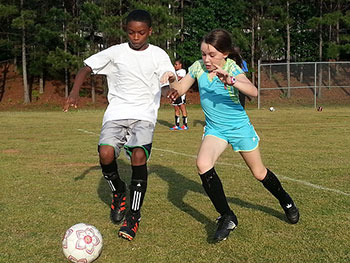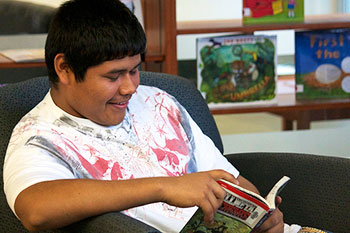
Source: Ellen @ Soccer, Bill McNeal, Flickr
Picture this: On the first day of soccer practice, someone you just met invites you to a party that Friday night. Great, you think. I’ll get to see all my friends and talk about the new team, the new coach, and so forth. But when you show up at the party, you are shocked to find out that you know no one there, not one person. No one is there to help you get to know new people, to help you learn who they are, where they’re from, what they like and don’t like. Chances are you’d wish you had some people you already knew to help you fit in and to make sense of the new people you’re meeting.
The point of this story is to show how friends are great to have, particularly when you need them. But what if your friends weren’t all people? What if, for example, you counted words among your friends? Why would you do that? Well, as we just saw, friends can come in pretty handy sometimes. They can be a bridge between what we know and what we don’t know, a bridge between old friends and new ones. Words can do the same. They can be a bridge for us when we read.

Source: 03.01.11, Marie Colman, Flickr
Has this ever happened to you? You’re reading your favorite graphic novel. Everything is going great. You’re really getting into the story. All of a sudden, you come upon a word you don’t know. What now? You think about getting up and going to find a dictionary, grabbing your device and looking it up online, or maybe approaching a friend or your teacher. But all these possibilities seem like too much work. What can you do?
Enter your old friends: words. You can figure out the meaning of the new word by being on the lookout for words that you already know in the surrounding text—your old friends. Just like having old friends that you know at a party would be helpful, having words you know in a story can be helpful in making sense of words you don’t know. In reading comprehension, this is called using context to understand new vocabulary.
In this lesson, you will learn how to recognize and use context clues to understand the meanings of unfamiliar words.